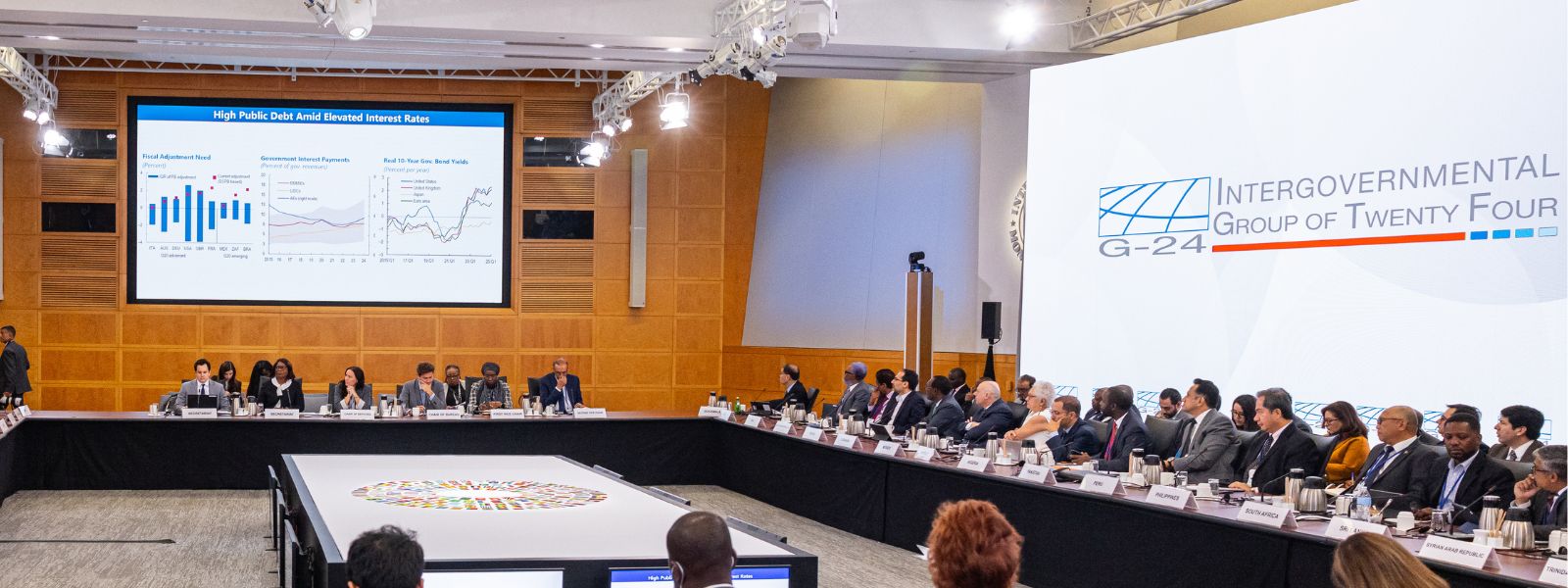.webp)

G-24: Tariff Hikes Threaten Global Economic Stability
COLOMBO (News 1st); The G-24 has issued a call to action in response to the severe humanitarian suffering caused by global crises and conflicts.
In their latest statement, the group highlighted the increasing scale and complexity of these crises, which continue to exert significant pressure on frontline states, particularly in developing regions.
The G-24 expressed concern over the tightening of global aid budgets amid escalating needs and the potential impact of delays in delivering critical assistance.
They emphasized the importance of predictable, needs-based, and principled humanitarian support to restore stability, preserve development gains, and enable early recovery.
The international community was urged to maintain existing aid commitments and uphold the integrity of humanitarian action, with multilateral support for recovery, reconstruction, and long-term development.
The global economic outlook remains uncertain due to increasing geopolitical tensions and trade conflicts arising from sudden shifts in trade policies in major economies.
The G-24 noted that global growth is expected to moderate in 2025 and remain steady in 2026, but at levels insufficient to accelerate progress towards sustainable economic development.
Tariff hikes could lower real wages, disrupt global supply chains, and disproportionately impact Emerging Markets and Developing Economies (EMDEs) and Low-Income Countries (LICs).
The impact of tariff measures on inflation remains uncertain, with many EMDEs experiencing rising bond yields, capital flow reversals, and depreciating currencies following tariff hikes.
Tighter financial conditions could exacerbate external, fiscal, and debt vulnerabilities, jeopardizing financial stability and hindering economic progress, said the Intergovernmental Group of Twenty-Four on International Monetary Affairs and Development.
In light of these global developments, the G-24 stressed that domestic policymaking is the first line of defense.
Fiscal policies should safeguard fiscal sustainability, rebuild buffers, remain growth-friendly, and catalyze public and private investments towards productivity-enhancing reforms.
Central banks should continue efforts to maintain price and financial stability, adjusting policies in a data-dependent manner. Structural reforms are crucial to sustainably raise productivity and growth, address acute challenges, and strengthen social safety nets.
The G-24 welcomed the steadfast commitment of the International Monetary Fund (IMF) to its core mandate as the center of the Global Financial Safety Net (GFSN) and looked forward to the implementation of the Managing Director’s Global Policy Agenda.
They urged the Fund to leverage its role to encourage multilateral cooperation and support the most vulnerable countries facing manifold challenges. The G-24 called for rapid progress in quota reforms to ensure the IMF can cope with escalating global challenges and strengthen the voice and representation of developing countries in the Fund's governance structure.
The G-24 emphasized the need for innovative solutions to leverage Special Drawing Rights (SDRs) to address global challenges, including the goals of the Global Alliance against Hunger and Poverty.
The G-24 called for addressing imbalances in liquidity access and strengthening crisis prevention and response capabilities, including enhancing existing financial safety nets.
Other Articles
Featured News





.png )




-722285-778677_850x460-785225_850x460-788199_850x460-788884_550x300.jpg)


-788581_550x300.jpg)



-785316_550x300.jpg)
















.gif)